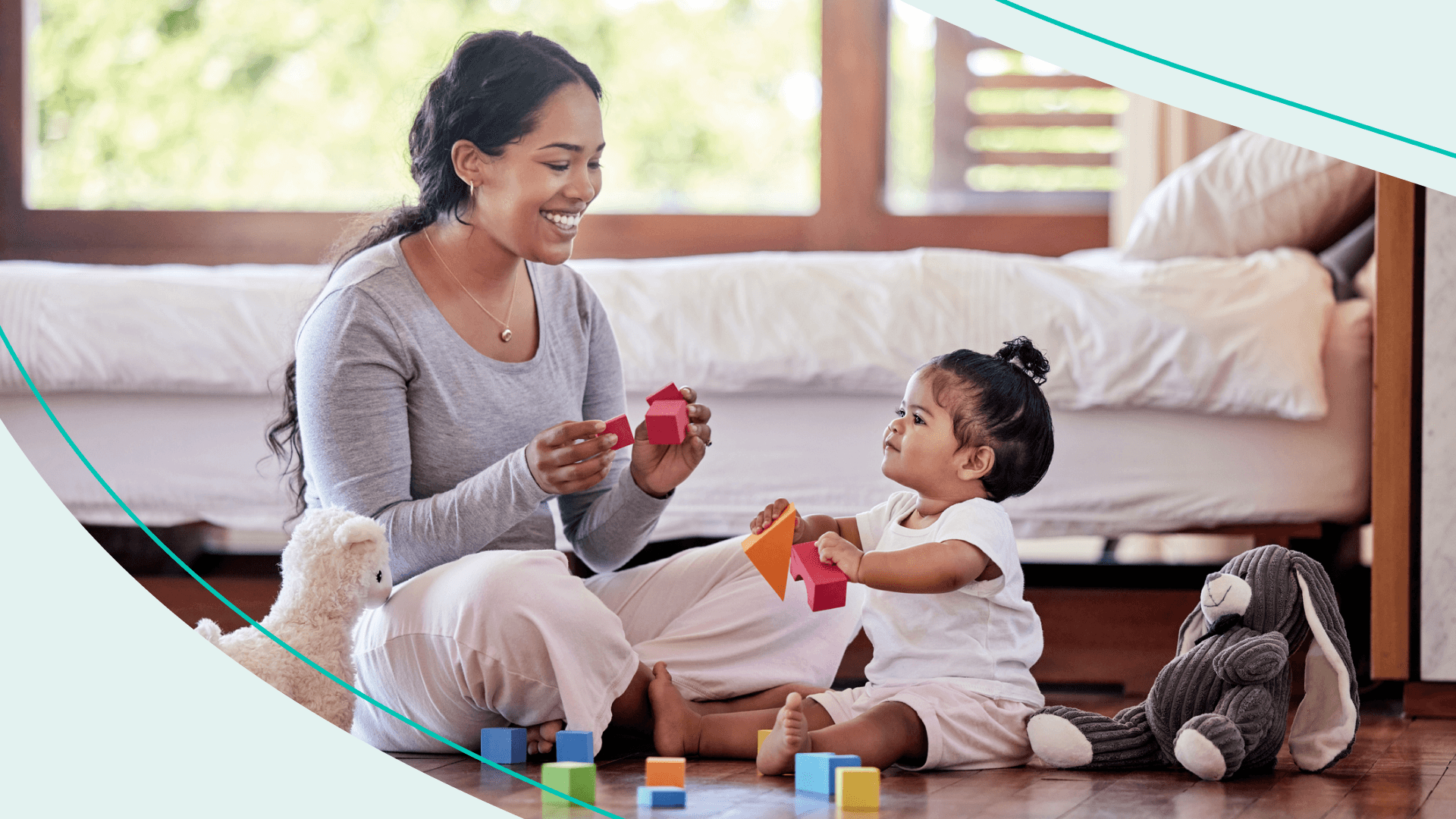Did you know that spending just five minutes of playtime with your kids each day could improve your relationship and their behavior? (We know, it sounds like a Geico commercial). But it’s called “special time,” and it’s different from regular playtime. Your child is in charge, but you are involved – attentively involved. (We’ll share pointers later).
The idea of special time isn’t new. Child Psychologist Sheila Eyberg introduced the concept in the 1970s as part of Parent-Child Interaction Therapy. But — perhaps unsurprisingly in the era of “gentle parenting” — pediatricians, early childhood experts, and clinical psychologists (see, Dr. Becky) have been advocating for parents to make it part of their routine.
Basically, you set aside 5 minutes a day to join your child in whatever play they choose. The goal is to focus on your kid’s positive behavior and ignore the negative. Doing this for even a short amount of time increases connection and trust, according to the CDC. Why? Decades of research show children’s emotional development is closely tied to their environments, which includes their parents. And data tells us warm, nurturing relationships between parents and children lead to positive outcomes in kids. PS: It also reduces stress in parents (score).
Here’s what special time involves, and what parents need to do to really reap the benefits.
How does special time work?
This is a short play session (think: 5-10 minutes each day) that can be done with kids of any age. The focus is on praise, imitation, and active listening. (aka: Good vibes only).
Rule 1: The child leads
Parents shouldn’t give directions or guide the activities in any way. Even something like, “Why don’t you use the pink ball now?” is a direction. Questions are also not allowed (we’ll break that down below). Why? According to the CDC, letting kids make the decisions helps them feel more independent. And it builds confidence.
Rule 2: Parents listen, recap, and copy
Describing: Parents act as sports commentators during special time. It’s describing what the child is doing in detail to someone who can’t see the action. (This will feel really goofy at first, but have some fun with it.)
Reflecting: Parents should try to reflect or repeat back what the child says or feels. Mirroring their behavior shows that you’re actively listening. And it’ll help kids understand and deal with their feelings. (They’re more likely to talk to us about their hopes and problems if they know we’re going to listen).
Imitating: The priority here is to give positive attention to good behaviors. Copying or mimicking things children do shows them parents are paying attention. And that what they’re doing is good. Imitation can help kids feel good about themselves. (FYI: The more you imitate good things your child does, the more they’ll repeat those behaviors — and not just during special time).
6 Tips on how to do special time with your kids
Some of these tactics will take practice. Eventually, you’ll notice you start to implement them in everyday situations.
1. Use toys that encourage your kid to be creative. Think: blocks, crayons, train sets, or paper. You may have to modify activities depending on your child’s age. PSA: Make sure you have enough toys so you can play too (and you can imitate them).
2. Get excited. And use that enthusiasm to show your kid that you’re having fun with them. (This may take extra energy at first.)
3. Limit questions. Remember the goal is to have them lead. Questions may come off like you’re not paying attention or you disagree with what they’re doing (even asking, “What shape is that?” is a nope). This is hard, so don’t worry if it takes you some time to stop asking questions.
Also, there are many times during the day when you have to ask questions and intervene. Just try to avoid them during special time.
4. Make special time part of your routine. Try to make this a daily session at the same time each day. Start with 5 minutes. You can work up to 10 minutes or however long is best for you and your family. The more you consistently do special time, the better, but don’t stress if you can’t do this every day.
5. Stay away from criticism.Even if it’s minor. For example, if your child is using a blue crayon and they describe it as purple, don’t say, “No, that’s not purple.” Criticism doesn’t help stop bad behaviors. And the CDC says kids who get criticized a lot can develop self-esteem issues.
6. Ignore bad behaviors. This will take extra patience. But if your kid starts to whine, for example, try to ignore it. Reminder: Parents should praise and imitate all the good things their kids do. And give no attention to bad behavior.
The special time ritual isn’t supposed to replace other playtime. Learning, play, and other activities you share with your kids during the day also help build positive, strong relationships. (Think: cuddling, story time, or singing).
theSkimm
Special time helps build stronger relationships between parents and kids. That bond impacts children’s brain development, emotional regulation, and stress levels (theirs and yours). Start with 5 minutes, and try to make it a daily ritual. The more you do it, the more it pays off.
Live Smarter
Sign up for the Daily Skimm email newsletter. Delivered to your inbox every morning and prepares you for your day in minutes.
